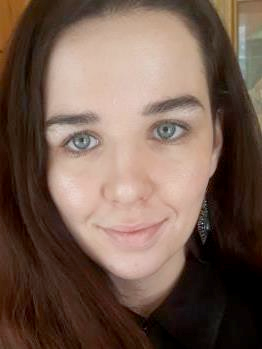
Claire Hyland
- Occupational Therapy Role-Emerging Placement Experience
MSc Occupational Therapy

MSc Occupational Therapy
My name is Claire and I’m from the midlands of Ireland. I’m currently studying a Master’s in Occupational Therapy at the University of Cumbria. I wanted to write about my placement experience on the MSc Occupational Therapy programme, to help give you an idea of what a role-emerging placement will be like on the course.
You could say I took the long way round into occupational therapy (OT)! I certainly would have studied it earlier in life, but I didn’t realise it was a viable option while I was in secondary school. My academic background is in modern European languages and linguistics, graduating with a BA from Trinity College, Dublin, in 2013.
You might be intrigued by my career path now, considering my undergraduate field is far from the OT world. Honestly, I wasn’t sure what I wanted to do when I applied for university courses at 17.
I would say to any other mature students: don’t worry about your age or seemingly irrelevant experience when it comes to occupational therapy. As long as you’re driven, have a purpose for studying OT, and some relevant experience in healthcare, you will succeed. It’s a career where life experiences enrich your performance as a budding clinician.
I would say to any other mature students: don’t worry about your age or seemingly irrelevant experience when it comes to occupational therapy. As long as you’re driven, have a purpose for studying OT, and some relevant experience in healthcare, you will succeed.
I went on placement in Douglas on the Isle of Man. I work in a reablement team, so our aim is to achieve goals set by the service user, from the first week of hospital discharge. We work with reablement support workers and assessment officers to provide the service user with consistent support in their homes. Our aim is to ensure people stay as independent as possible for as long as possible.
There’s a strong focus on assistive equipment and referring the service users to community-based activities. We also cover fall prevention clinics, partake in multidisciplinary team meetings, and travel all over the island. I like working in the community, meeting new people and the daily changes in environments. The reablement programme lasts 6 weeks and it’s very rewarding to see the service user’s progress and positive feedback.
At the weekends, there’s lots to see and do here – no shortage of hikes, beach walks, great seafood, and interesting places to explore. I enrolled at the National Sports Centre gym/pool for one month for only 32 pounds with my student card. I’ve found the community in Douglas to be incredibly helpful and friendly. For anyone thinking they might be interested in travelling here for a few weeks, I’d highly recommend it!
I’ve learnt so much through my placement, including:
Through my placement, I’ve developed a deeper understanding of equipment and household assessments. I also see the importance of a support network, engaging in occupations, and a service user’s environment. I’m seeing in real-time how all three are integral to a person’s wellbeing.
The area of OT I want to specialise in is hippotherapy, which is quite niche, so I wouldn’t say my placement has changed my mind about that. However, I really enjoyed working in the community and geriatric services. It’s very humbling and reminded me of my time as a healthcare assistant in the community.
I’m thankful to the University of Cumbria for organising this opportunity – working with wonderful service users and educators in a beautiful environment has been an exceptionally enriching experience.